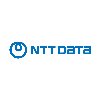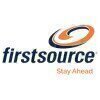Collection Associate
10+ Collection Associate Interview Questions and Answers

Asked in HDB Financial Services

Q. How would you collect EMI payments and customer feedback from the market and vehicle running zone?
To collect EMI and customer feedback from market and vehicle running zone, we can use various methods.
We can conduct surveys and feedback forms at the dealership or service centers.
We can also use mobile apps to collect feedback from customers.
For vehicle running zones, we can use telematics to track vehicle performance and collect data on EMI payments.
We can also use social media platforms to gather feedback and reviews from customers.
Training the sales and service staff to ...read more

Asked in mPokket

Q. What do you know about collections?
Collections refer to the process of recovering unpaid debts from individuals or businesses.
Collection involves contacting debtors to remind them of their outstanding debts
It may involve negotiating payment plans or taking legal action
Collection agencies are often hired by creditors to handle the process
The Fair Debt Collection Practices Act regulates collection practices in the US
Collection Associate Interview Questions and Answers for Freshers

Asked in Delhivery

Q. What strategies do you use when a customer or company refuses to pay?
Effective strategies for handling customers or companies that refuse to pay include communication, negotiation, and escalation.
Establish open communication: Reach out to the customer to understand their reasons for non-payment. For example, ask if there are any disputes regarding the invoice.
Negotiate payment terms: Offer flexible payment plans or discounts for early payment. For instance, suggest a 10% discount if they pay within 10 days.
Document everything: Keep detailed re...read more

Asked in Provana

Q. What is the difference between 1st party collection and 3rd party collection?
1st party collection involves the original creditor attempting to collect debts directly from the debtor, while 3rd party collection involves a separate agency hired to collect debts on behalf of the original creditor.
1st party collection is when the original creditor, such as a bank or credit card company, attempts to collect debts directly from the debtor.
3rd party collection is when a separate agency, not affiliated with the original creditor, is hired to collect debts on ...read more

Asked in HDB Financial Services

Q. How do you convince a customer to make a payment?
I convince the customer for payment by understanding their situation and offering flexible payment options.
Listen to the customer's concerns and empathize with their situation
Explain the consequences of not paying and the benefits of paying on time
Offer flexible payment options such as payment plans or discounts for early payment
Follow up regularly to ensure payment is made and address any further concerns
Maintain a professional and respectful demeanor throughout the process

Asked in IDFC FIRST Bharat

Q. How much time has been worked in the Collection, which bucket has been collected
I have worked in Collection for 3 years and have collected from all buckets.
I have worked in Collection for 3 years
I have collected from all buckets
I am familiar with the different buckets and their collection processes
Collection Associate Jobs




Asked in Tata Motors

Q. What is npa cases and what is repo process
NPA cases are non-performing assets where the borrower has defaulted on loan repayment. Repo process is the recovery of such assets.
NPA cases refer to loans where the borrower has not made any payments for a certain period of time, usually 90 days or more.
Repo process involves the lender taking possession of the asset that was used as collateral for the loan, in order to recover the outstanding amount.
The repo process can involve selling the asset through auction or private s...read more

Asked in Provana

Q. What is FDCPA? Do you have collections experience?
FDCPA stands for Fair Debt Collection Practices Act. It is a federal law that protects consumers from abusive debt collection practices.
FDCPA regulates the behavior of third-party debt collectors who are attempting to collect debts on behalf of others.
It prohibits practices such as harassment, false or misleading representations, and unfair practices.
Collection associates need to be familiar with FDCPA guidelines to ensure compliance and avoid legal issues.
Share interview questions and help millions of jobseekers 🌟


Asked in HDB Financial Services

Q. How much knowledge do you have about the system?
I have extensive knowledge about the system used for collections, including software, processes, and regulations.
I am proficient in using collection software to track accounts and communicate with debtors.
I understand the legal regulations surrounding debt collection practices.
I am familiar with the process of skip tracing to locate debtors who have moved or changed contact information.

Asked in Tata Motors

Q. 1-What is npa cases ? 2- what is repo process?
NPA cases refer to non-performing assets, which are loans or advances that have stopped generating income for the lender.
NPA cases are typically loans or advances that have not been repaid by the borrower for a specified period of time.
These cases indicate a deterioration in the borrower's creditworthiness and the inability to meet repayment obligations.
Banks and financial institutions classify loans as NPAs based on criteria such as the number of days past due, interest serv...read more

Asked in Randstad Global Capability Center

Q. What is DSO, and what is its calculation formula?
DSO stands for Days Sales Outstanding, a measure of how long it takes for a company to collect payment from its customers.
DSO is calculated by dividing accounts receivable by total credit sales and multiplying by the number of days in the period.
Formula: DSO = (Accounts Receivable / Total Credit Sales) * Number of Days
For example, if a company has $100,000 in accounts receivable and $1,000,000 in total credit sales over a 30-day period, the DSO would be 3 days.

Asked in HDB Financial Services

Q. Have you handled mobile handsets in collections?
Yes, I have experience handling mobile handsets for collection purposes.
Yes, I have experience handling mobile handsets for collection purposes.
I am familiar with the process of collecting mobile handsets from customers who have outstanding payments.
I have knowledge of the necessary procedures and documentation required for handling mobile handsets in a collection setting.

Asked in UltraTech Cement

Q. Are you proficient in Excel?
Yes, I am proficient in handling Excel for data analysis, reporting, and organizing information.
Proficient in creating and editing spreadsheets
Skilled in using formulas and functions
Experienced in data analysis and reporting
Familiar with pivot tables and charts
Can manipulate data for various purposes

Asked in BYJU'S

Q. How do you sell a product?
To sell a product, understand the customer's needs, highlight the benefits, and create a sense of urgency.
Identify the customer's pain points and how the product can solve them
Highlight the unique features and benefits of the product
Create a sense of urgency by offering limited-time discounts or emphasizing the product's popularity
Address any objections or concerns the customer may have
Close the sale by asking for the customer's commitment

Asked in Genpact

Q. What is the O2C cycle?
O2C cycle stands for Order to Cash cycle, which is the process of receiving and fulfilling customer orders.
Includes order processing, invoicing, payment collection, and revenue recognition
Involves multiple departments such as sales, finance, and customer service
Ensures timely delivery of goods or services to customers
Example: Customer places an order, order is processed, invoice is generated, payment is received, and revenue is recognized

Asked in Randstad Global Capability Center

Q. Explain the dispute process.
Dispute process involves resolving disagreements between a consumer and a company regarding a financial transaction.
Dispute process typically starts when a consumer raises a concern about a charge on their account.
The company investigates the dispute by reviewing transaction records and communicating with the consumer.
If the company finds an error or discrepancy, they may issue a refund or credit to resolve the dispute.
If the consumer is not satisfied with the resolution, the...read more

Asked in Mahindra Finance

Q. How many visits do you make on a typical day?
The day to day visit count refers to the number of visits made by the collection associate on a daily basis.
The day to day visit count can vary depending on the workload and number of accounts assigned to the collection associate.
It is important for the collection associate to maintain a consistent visit count to ensure all accounts are being addressed in a timely manner.
Tracking the day to day visit count can help identify trends and areas for improvement in the collection p...read more

Asked in HDB Financial Services

Q. Current to write off
Current to write off refers to the amount of debt that is deemed uncollectible and removed from the books.
Current to write off is typically determined based on the age of the debt and the likelihood of collection.
It is important for collection associates to regularly review and update the current to write off amount.
Examples of factors that may contribute to a debt being written off include bankruptcy of the debtor or inability to locate the debtor.

Asked in Firstsource Solutions

Q. Please provide a general introduction about yourself.
Dedicated and detail-oriented Collection Associate with strong communication skills and a passion for helping clients manage their accounts.
Experience in debt collection and account management, ensuring timely payments.
Strong negotiation skills, successfully resolving disputes with clients.
Proficient in using collection software and CRM systems to track accounts.
Ability to handle high-pressure situations while maintaining professionalism.
Excellent communication skills, both v...read more
Interview Questions of Similar Designations
Interview Experiences of Popular Companies








Reviews
Interviews
Salaries
Users
















